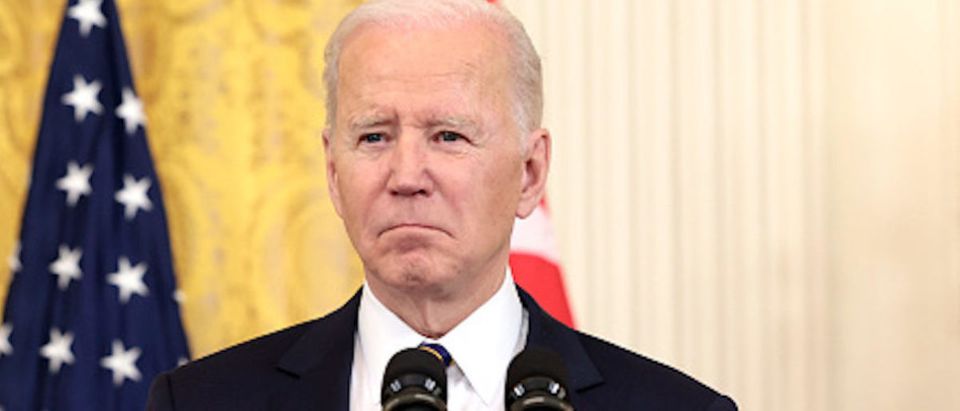For better or worse (mostly worse), modern presidential campaigns now begin at least two years before the next election. This means that the 2024 campaign will begin no later than November 9, 2022.
This timing presents President Joe Biden and his fellow Democrats with a major dilemma.
Campaigns take time, as there will be jockeying for money, media exposure and endorsements. Incumbent presidents almost always are presumed to have an advantage and, usually, are reelected.
COVID will likely be behind us, so potential candidates will no longer be able to campaign from their home basements as Biden did in 2020. We can expect the 2024 contest to resemble a more traditional, vigorous presidential campaign.
When asked recently, Biden, age 79, indicated that he will run for reelection in 2024 with Vice President Kamala Harris as his running mate. What else could he say? A “no” response would have branded him an instant lame duck.
But how realistic is a Biden reelection campaign in 2024? If he is sworn in for a second term on January 20, 2025, he will be 82 years old.
When scripted – whether on domestic policy or foreign policy issues – President Biden is barely convincing. When unscripted, his gaffes, silences and rambling non-sequiturs are alarming.
At the end of his highly anticipated first State of the Union address, Biden shouted: “Go get ‘em!” What did he mean? To whom was he speaking?
It is increasingly clear that Biden will not be physically or mentally able to serve a second four-year presidential term. Anyone who thinks differently is ignoring reality. Tucker Carlson has already urged impeaching Biden under the 25th Amendment to the U.S. Constitution given the president’s declining faculties.
That route leaves us with President Kamala Harris. Ponder that possibility.
The issue turns on timing. If Biden does decide not to run, when should he make his announcement? If too early, his presidency is over. If too late, he hobbles the Democrats’ ability to rally behind someone other than Kamala Harris, who has demonstrated thus far her manifest incompetence on both national and international stages.
If today’s trends continue, Democrats can be expected to lose control of both the House and Senate this November. Should that happen, Biden will be a spent political force.
In 2020, when Biden received seven million or so more votes for president than Donald Trump, he had no political coattails whatsoever. In fact, the reverse happened: Democrats lost a dozen House seats and only tied the Senate.
Biden’s approval rating currently hovers around 40% – a dreadful figure for a first-year president. A recent Grinnell College National Poll found Biden’s approval at 34%.
But, hey, what the heck? The Biden White House can take solace from former French president Francois Hollande, whose approval rating once sunk to a “friends-and-family-only” low of four percent. Hollande later wisely decided not to seek reelection.
If COVID ultimately peters out before November and inflation starts to recede, it’s possible that Biden’s popularity might stabilize and drift upwards.
It’s still likely, however, that our southern border will remain out of control, alarming crime rates will continue and external challenges from China, Cuba, Iran and Russia will threaten. Additionally, changes in macroeconomic trends are notoriously slow: there’s usually a public-recognition lag time of several months.
Biden’s chosen “heir apparent,” Kamala Harris, while 22 years Biden’s junior, will never be capable of handling the presidency. Were Democrats to nominate her as Biden’s successor, they would be inviting a political disaster that would make Barry Goldwater’s 1964 blowout loss to Lyndon Johnson look like a close election.
There remains just one possible, politically viable option for Biden and his party: he should invoke the 25th Amendment himself and announce in January 2023 — perhaps during his next State of the Union speech — that he will serve just one term in the White House.
During the remaining 24 months of his presidency, Biden could abandon partisanship and pursue what he believes are the nation’s best interests. He might even be able to rise above hyper-partisanship and progressive wokeism, reposition Democrats as centrists, and help establish that national-unity agenda he promised on January 20, 2021.
Under this scenario, with Biden as elder statesman, the Democrats could conduct a wide-open, healthy primary for their 2024 nomination.
Watch closely what happens after November’s midterm elections. If there’s a GOP landslide, Biden will have to declare his intentions in January 2023.
Charles Kolb served as Deputy Assistant to the President for Domestic Policy from 1990-1992 in the George H.W. Bush White House


